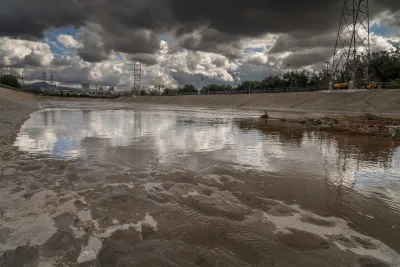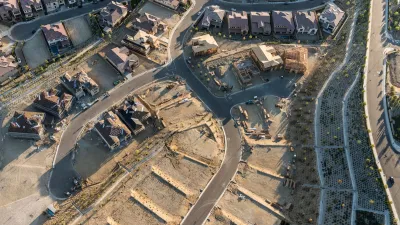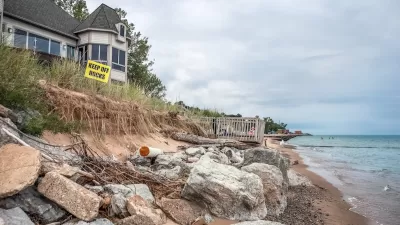Chief Sustainability Officer Rita Kampalath outlines the County’s shift from planning to implementation in its climate resilience efforts, emphasizing cross-departmental coordination, updated recovery strategies, and the need for flexible funding.

In this wide-ranging interview, LA County Chief Sustainability Officer Rita Kampalath discusses the County’s evolving approach to climate resilience and disaster recovery, emphasizing a shift from planning to implementation. Since the adoption of the OurCounty Sustainability Plan in 2019, more than 80 percent of prioritized actions are either completed or on track — including major accomplishments like the oil drilling phase-out ordinance, the County’s first water plan, and expanded renewable energy access through the Clean Power Alliance. Now, as the County updates the plan, Kampalath stresses the need for targeted updates that reflect emerging challenges such as extreme heat, flooding, and wildfire recovery.
A major addition to the revised plan is a comprehensive climate resilience strategy, led by the newly appointed Climate Resilience Officer. This role emerged from a growing recognition that climate hazards are affecting residents now — not just in the future — and must be addressed through cross-departmental coordination and equitable community engagement. Kampalath notes that disaster recovery efforts, such as rebuilding after the Eaton and Palisades fires, are an opportunity to "build back better," integrating modern resilience standards while navigating policy challenges around rebuilding codes, infrastructure, and public expectations.
Kampalath also reflects on the limitations of existing governance and funding structures, which often are not equipped to handle the complexity of today’s climate threats. She stresses that the urgency now lies in execution or implementation and that regional cooperation and flexible funding mechanisms are essential to move from vision to action. Drawing lessons from other jurisdictions like Boulder and Maui, Kampalath calls for a rethinking of both how government collaborates internally and how it secures the resources necessary to support communities not just in recovery, but in long-term climate resilience.
FULL STORY: CSO Rita Kampalath on LA County Resilience Planning

Rethinking Redlining
For decades we have blamed 100-year-old maps for the patterns of spatial racial inequity that persist in American cities today. An esteemed researcher says: we’ve got it all wrong.

Planetizen Federal Action Tracker
A weekly monitor of how Trump’s orders and actions are impacting planners and planning in America.

California High-Speed Rail's Plan to Right Itself
The railroad's new CEO thinks he can get the project back on track. The stars will need to align this summer.

‘Displaced By Design:’ Report Spotlights Gentrification in Black Neighborhoods
A new report finds that roughly 15 percent of U.S. neighborhoods have been impacted by housing cost increases and displacement.

Nevada and Utah Groups Oppose Public Land Sell-Off Plan
A set of last-minute amendments to the budget reconciliation bill open up over half a million acres of federally managed land to sales.

More Than a Park: A Safe Haven for Generations in LA’s Chinatown
Alpine Recreation Center serves as a vital cultural and community hub in Los Angeles' Chinatown, offering a safe, welcoming space for generations of Chinese American residents to gather, connect, and thrive amidst rapid urban change.
Urban Design for Planners 1: Software Tools
This six-course series explores essential urban design concepts using open source software and equips planners with the tools they need to participate fully in the urban design process.
Planning for Universal Design
Learn the tools for implementing Universal Design in planning regulations.
City of Clovis
City of Moorpark
City of Camden Redevelopment Agency
City of Astoria
Transportation Research & Education Center (TREC) at Portland State University
Regional Transportation Commission of Southern Nevada
Toledo-Lucas County Plan Commissions





























